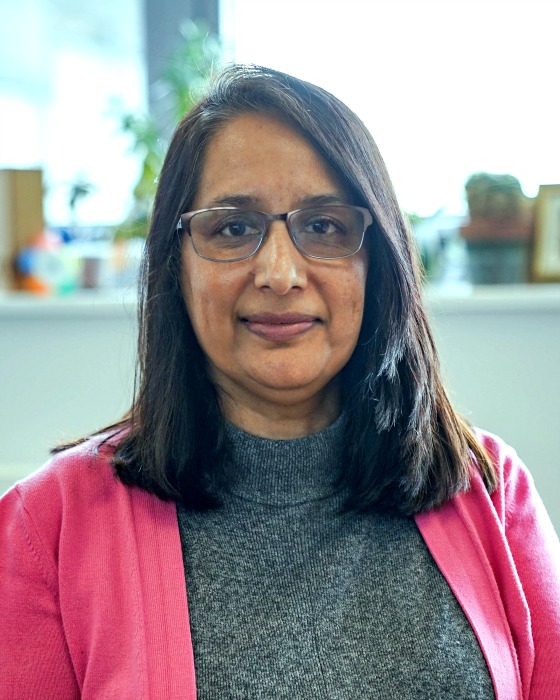De Montfort University Leicester (DMU) welcomes Professor Shushma Patel as its new Pro Vice-Chancellor and Dean for the Faculty of Computing, Engineering and Media.
Professor Patel’s academic training informs both her research and teaching. She has led multidisciplinary research and has worked closely with a number of industries, empowering companies to exploit new technologies and maintain a competitive advantage.
Her keen interest in developing innovative learning and teaching practices supports students to succeed, and her passion for promoting equality, diversity and inclusion is evident in her active championing of women in STEM and leadership.
Get to know what drives Professor Patel and what she has planned for her new role at DMU in the interview below.

What attracted you to DMU?
I wasn’t actively looking for a new position, but when this opportunity came along DMU’s ethos, mission and culture really resonated with me.
As the daughter of immigrants who moved to England and didn’t know the education system, I’m proud to be a first generation from my family in higher education, and so I can relate to DMU’s student body. Like myself, many of our students are first generation in HE and many have additional caring and work responsibilities.
What is it about education that drives you?
I’m very much driven by the value added by learning opportunities. If you make a difference to one student, it can have a viral effect, making a positive impact on so many more. To me that’s important. Education is powerful - it is empowering for everyone who wants to engage with it.
What are you passionate about achieving through education?
As a woman working in STEM, I’m passionate about diversity, equality and inclusion. I have faced personal challenges in my own education and career - women in technology are few and far between - but I can see how we need to address imbalances in all areas, including where the gender imbalance is weighted towards women.
This is why it’s important to have role models, because representation matters. Students are our leaders of tomorrow and enabling them to succeed will ensure that our industries are better equipped for the future. These challenges exist to be overcome and I will strive to break down the barriers, for both our students and staff.
How do you hope to achieve that at DMU?
A multidisciplinary approach is key. In my faculty alone, we have computing, engineering and media students all working in creative and innovative ways. One of my roles is to identify ways for students and staff to work across these disciplines, blurring the boundaries between disciplines and capitalising on our expertise.
Of course, we still want to nurture computer scientists, engineers, media specialists – to give just a few examples – who are true to their disciplines and experts in their fields. However, blurring boundaries is about maximising opportunities and encouraging innovation. Industry requires experts who think outside of the box and one way to achieve that is by engaging and collaborating with other disciplines.
You bring a wealth of research background with you – tell us about it.
Research is very important to me, not least because it provided me with the skills I needed to be able to work in many different areas. I started out in medical research and now focus on technology, so it has evolved alongside my teaching and learning.
Recently I’ve been researching creativity and innovation in engineering – it’s very satisfying to challenge the perception that engineering isn’t a creative discipline. Engineers have to be very creative to solve the problems presented to them.
I also enjoy exploring the continuum from research to enterprise, especially how knowledge is exchanged, how research is disseminated and the societal impact it has.
Before joining DMU, Professor Patel held various roles at London South Bank University, including Interim Dean, Director of Research and Enterprise and Director of Education and Student Experience.
She has a BSc (Hons) degree in Life Sciences from what is now the University of Westminster and a PhD from the Faculty of Medicine (Institute of Dermatology), University of London.
Professor Patel is a Chartered IT Professional, Fellow of the British Computer Society (BCS), Principal Fellow of the Higher Education Academy and a National Teaching Fellow.
She is an expert evaluator for H2020, a member of the BCS Academic Accreditation Committee and a QAA Quality and Standards Reviewer. She was also a TEF subject pilot assessor for engineering and technology.
Posted on Tuesday 8 December 2020